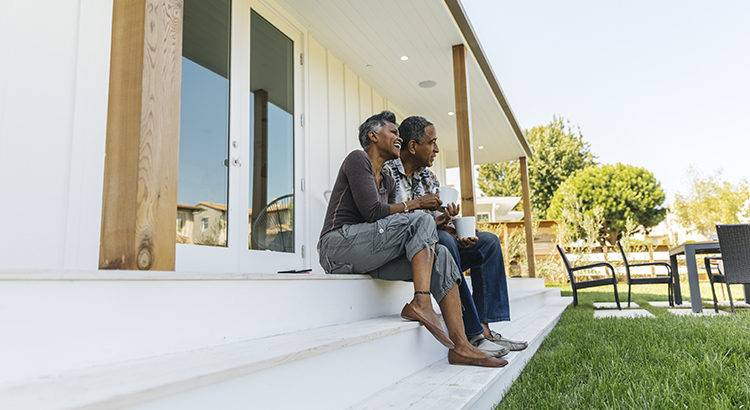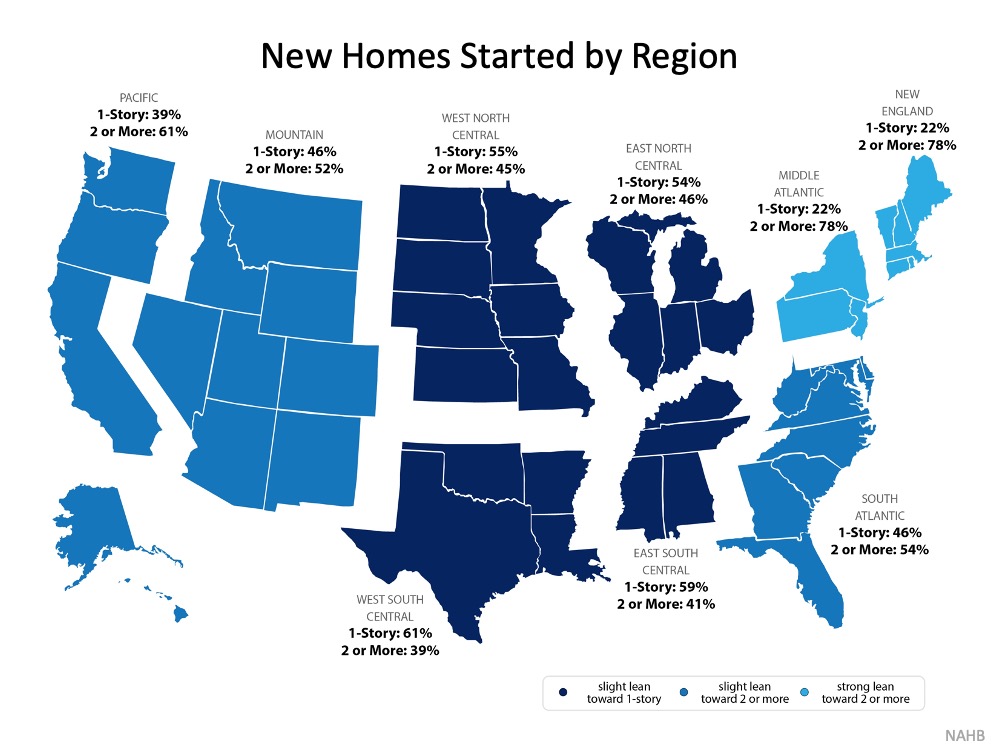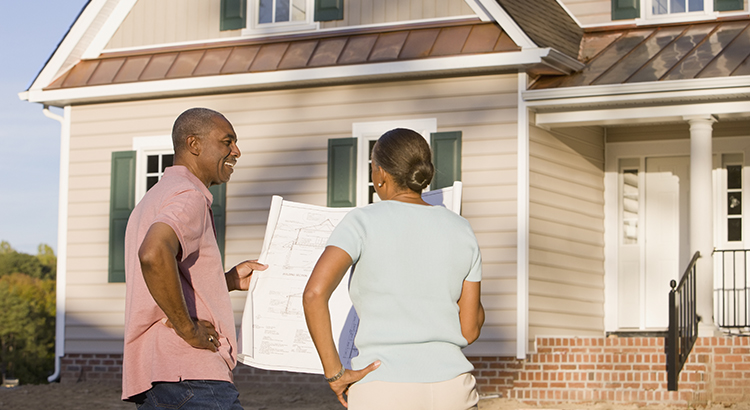Social Links Widget
Click here to edit the Social Media Links settings. This text will not be visible on the front end.
Is it Time to Move into a Single-Story Home?


Once the kids have left the nest, you may be wondering what to do with all of the extra space in your home. Chances are, you don’t need four bedrooms anymore, and it may be a great time to sell your house and downsize, maybe even into a single-story home. You’ve likely gained significant equity if you’ve lived in your home for a while, so making a move while demand for your current house is high could be your best step forward toward the retirement goals you set out to achieve several years ago.
The dilemma, though, is where to go next. A big concern for many homeowners who are ready to sell is finding a home to move into, given today’s lack of houses available for sale. There is, however, some good news: the number of single-family 1-story homes being built today is on the rise, improving your odds of finding the right home for your changing needs. In a recent article, The National Association of Home Builders (NAHB) explains:
“Nationwide, the share of new homes with two or more stories fell from 53% in 2018 to 52% in 2019, while the share of new homes with one story grew from 47% to 48%.”
Here’s a map showing the breakdown of newly constructed homes being built by region, and the percentage of 1-story and 2-story homes in that mix:
What are the benefits of buying a one-story home?
Still not sure about buying a single-story home? An article from Home Talk covers several advantages of switching from two floors to one:
1. Energy Efficient
“It is easier to heat and cool a single-story house [than] it would be to regulate the temperatures of a multi-story house.”
Most single-story homes only need one heating or cooling unit, and they typically stay cooler than a two-story home, both of which can lead to significant savings.
2. Easier to Maintain
“Doing a general cleaning in a single story requires less effort and you will be able to see all areas that need cleaning and the areas are easily accessible.”
Cleaning and maintenance of a single-story home can take less time and effort, and better upkeep helps improve the overall value of the home.
3. Accessible for Everyone
“A single-story house can be accessed by anyone, whether they are young children or the senior citizens.”
If you’re looking for a house that provides a safe and easily accessible environment at any age, a single-story home may be optimal.
4. Good Resell Potential
“When buying a single-story house, you should consider the resale value should you think of reselling it in case of a circumstance that can happen. Look at the growth rate of that area. Due to the high demand of these types of houses it is [easy] to resell them and depending on the growth rate of an area, it increases in value significantly.”
Single-story homes have a lot of benefits and are often in higher demand. This bodes well for future resale opportunities.
Bottom Line
There are many benefits to downsizing into a one-story home. Doing so while demand for your current house is high might make it easier than ever to make a move. Let’s connect if you’re ready to purchase the single-story home you need while homes are so affordable today.
Should You Buy an Existing Home or New Construction?


Finding the right home to purchase today is one of the biggest challenges for potential buyers. With so few homes for sale and construction of newly built homes ramping up, you may be wondering if you should consider new construction in your search process. It’s a great question to ask, and one to look at from the pros and cons of what it means to buy a new home versus an existing one. Here are a few things to consider when making the best decision for your family.
New Construction
When buying a new home, you can often choose more energy-efficient options. New appliances, new windows, a new roof, etc. These can all help lower your energy costs, which can add up to significant savings over time. With programs like ENERGY STAR, your home also helps protect the environment and reduces your carbon footprint.
Lower maintenance that comes with a newer home is another great benefit. When you have a new home, you likely won’t have as many little repairs to tackle, like leaky faucets, shutters to paint, and other odd jobs around the house. With new construction, you’ll also have warranty options that may cover portions of your investment for the first few years.
Another solid benefit to new construction is customization. Do you want a mudroom, stainless steel appliances, granite countertops, hardwood floors, an office, or a multipurpose room to homeschool your children? These items can be customized to your specific needs during the design phase. With an existing home, you’re buying something that’s already completed, so if you want to make changes, you may need to hire a contractor to help get your home ready for your family.
Existing Home
When buying an existing home, you can negotiate with the current homeowner on price, which is something you generally don’t get to do with a builder. Builders know their material and construction costs, and they have a price set for the model you’re buying. So, if you want to negotiate, then maybe an existing home will be best.
For many families, having an established neighborhood is also important. Some buyers like to know the neighbors, if it’s family-friendly, and traffic patterns before making a commitment. When you buy new construction, you won’t have a full view of some of those details until the lots around you are sold.
Finally, timing comes into play. With an existing home, you can move in based on the timeline you agree to with the sellers. With new construction, you need to wait for the house to be built. Depending on the time of the year you’re buying and the region you’re in, the weather can also be a factor in the timeframe. This is something really important to keep in mind, especially if you need to move sooner rather than later. Over the past few months with COVID-19 and social distancing regulations, some areas for new construction have been delayed.
Bottom Line
Whether you want to buy a newly built home or one that’s already established, both are great options. They each have their pros and cons, and every family will have different circumstances driving their decision. If you have questions and want to know more about the options in our area, let’s connect today so you can feel confident making a decision about your next home.


 Facebook
Facebook
 X
X
 Pinterest
Pinterest
 Copy Link
Copy Link